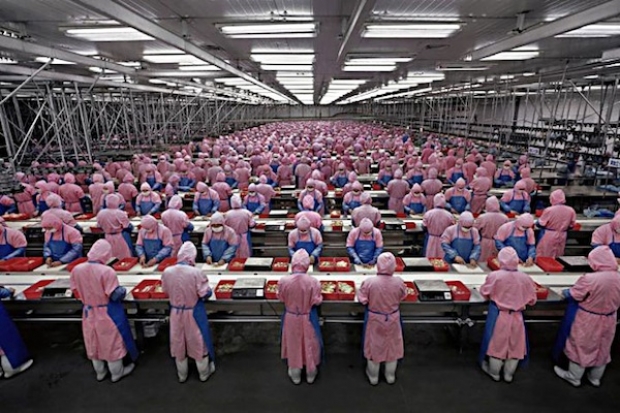The group has a long history of investigating Apple’s supply chain in China, and this time claims to have found problems at an iPhone factory in Shanghai.
The factory is owned by manufacturing giant Pegatron and employs around 100,000 people to make iPhones and iPads.
China Labor Watch sent its own investigator to work undercover at the factory in September and found that workers earn about $1.85 an hour and are forced to have significant overtime hours to make enough money to cover living expenses. Normally a shift was nine hours, but between September and December staff worked an additional minimum of 20 hours of overtime each week. This was split up between an extra two hours each week day and one 10-hour shift on Saturdays.
This overtime was essentially a requirement, and the implanted worker was told by his trainer that working eight-hour shifts five days a week " did not conform to the company’s hiring requirements."
Apple has publically tried to cap the excessive work hours at the factories, with its guidelines for manufacturers stating a 60-hour maximum work-week.
During 2014, 92 percent of the workers Apple monitored in its supply chain were compliant, according to the company, but in September of that year, when Apple was busy readying the iPhone 6 range for sale, the percentage fell to just over 75 percent for that month.
China Labor Watch, however, found the compliance rate was lower this year at the Shanghai Pegatron factory, where the group collected pay stubs from 76 workers in September and found that only 42 percent of the employees had worked 60 hours a week or less.
Workers lived in cramped dorms, and that the factory failed to provide adequate job safety training.
At least in one area Pegatron has improved. In 2013 Pegatron was "explicitly" discriminatory against people over 35, people with dyed hair and those of Tibetan or Uyghur ethnicity. That has gone now and there were "partial" improvements in regards to sick leave and resignation, among other areas, according to the report.




